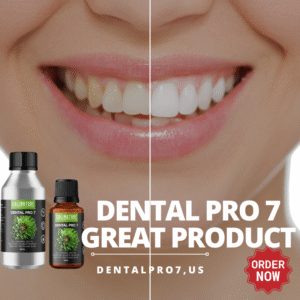What is Natural Toothpaste?
Natural toothpaste refers to dental cleaning products that are formulated using ingredients sourced from nature, primarily plant-based substances. Such discrepancies necessitate vigilance among consumers when selecting oral care products.
Moreover, even natural ingredients can have varying effects on oral health. The marketing of natural toothpaste can sometimes overshadow the importance of understanding these potential health implications. Thus, consumers must critically assess the ingredient lists of these products, recognizing that a label claiming ‘natural’ does not guarantee the absence of all synthetic components. As a result, being informed is essential while navigating the landscape of natural oral care products.
The Appeal of All-Natural Toothpaste
All-natural toothpaste has gained considerable popularity in recent years as more individuals become aware of the ingredients in their daily dental care products. Unlike regular natural toothpaste, which may still contain some synthetic additives, It is formulated without any artificial substances. This distinction is significant for consumers who prioritize the purity of the products they use in their oral hygiene routines.
Aloe vera, known for its soothing properties, can also enhance the formulation, benefiting individuals with sensitive gums. Furthermore, natural extracts such as eucalyptus or peppermint not only serve as antiseptics but also elevate the sensory experience of using the product, making oral care enjoyable and refreshing.
In addition to being safer, many plant-based ingredients present in all-natural toothpaste possess unique properties that contribute to oral health. For example, herbal extracts can offer antibacterial benefits, helping to maintain a healthy balance of oral bacteria while combating bad breath. Overall, It provides a wholesome approach to oral hygiene, allowing users to take control of their dental care while supporting a more holistic lifestyle.
Key Comparisons: Natural Toothpaste vs. All-Natural Toothpaste
When examining the distinctions between natural toothpaste and all-natural toothpaste, several critical factors emerge, including effectiveness, safety, environmental impact, and consumer perceptions. It typically contains some ingredients derived from nature but may include non-natural components for enhanced performance. In contrast, all-natural toothpaste strictly adheres to ingredients sourced exclusively from nature, often without any synthetic additives.
Effectiveness is a primary concern for consumers when selecting a toothpaste. The presence of fluoride, which is often found in traditional and some natural toothpaste formulations, has been widely recognized for its cavity-fighting properties. However, many it options do not contain fluoride, raising questions about their effectiveness in preventing dental issues. For instance, products like Dental Pro 7 promote their efficacy through the inclusion of potent natural ingredients that may provide substantial benefits without fluoride. This highlights a divergence in how consumers might evaluate oral care performance based on their personal values regarding it.
Safety plays a significant role in the comparison of these two types of toothpaste. This assurance aligns with growing concerns regarding the ingestion of chemical ingredients. In addition to safety, the environmental impact of packaging and ingredient sourcing is another critical factor influencing consumer choices. It brands often emphasize sustainable packaging and ethically sourced ingredients, tapping into a broader environmental consciousness among consumers.
Consumer perceptions regarding these products can vary widely, affected by personal health beliefs and experiences. Statistical data indicate that a substantial portion of consumers prefer all-natural toothpaste due to concerns about chemical exposure and a desire for transparent ingredient lists. Testimonials reveal that individuals switching to all-natural options often report positive experiences, further solidifying the appeal of these products. Ultimately, understanding these key comparisons is essential for consumers aiming to make informed choices regarding their oral hygiene products.
Making the Right Choice for Your Oral Health
Choosing the appropriate toothpaste is a crucial step in maintaining optimal oral health. With the growing popularity of natural and all-natural toothpaste options, understanding their differences can empower consumers to make informed decisions tailored to their unique dental needs. When selecting a toothpaste, consumers should begin by thoroughly reading the labels. Both natural and all-natural toothpaste should list ingredients that promote oral health without harsh chemicals or unnecessary additives. Being aware of these distinctions will aid in determining which product aligns with your health goals.
Additionally, identifying trustworthy brands is essential. Look for certifications, such as “USDA Organic” or other reputable endorsements that verify the product’s all-natural claims. Research and reviews can provide invaluable insights regarding brand reputation and the efficacy of their products.
Moreover, it is important to consider your individual oral health needs. For those with specific conditions, such as sensitivity or gingivitis, certain formulations may be more beneficial than others.
Integrating the use of natural or all-natural toothpaste into your oral hygiene routine can also enhance overall effectiveness. Complementing toothpaste selection with daily practices such as regular brushing, flossing, and routine dental check-ups supports comprehensive oral health. Adopting a holistic approach ensures that selecting the right toothpaste contributes significantly to your overall dental well-being.

